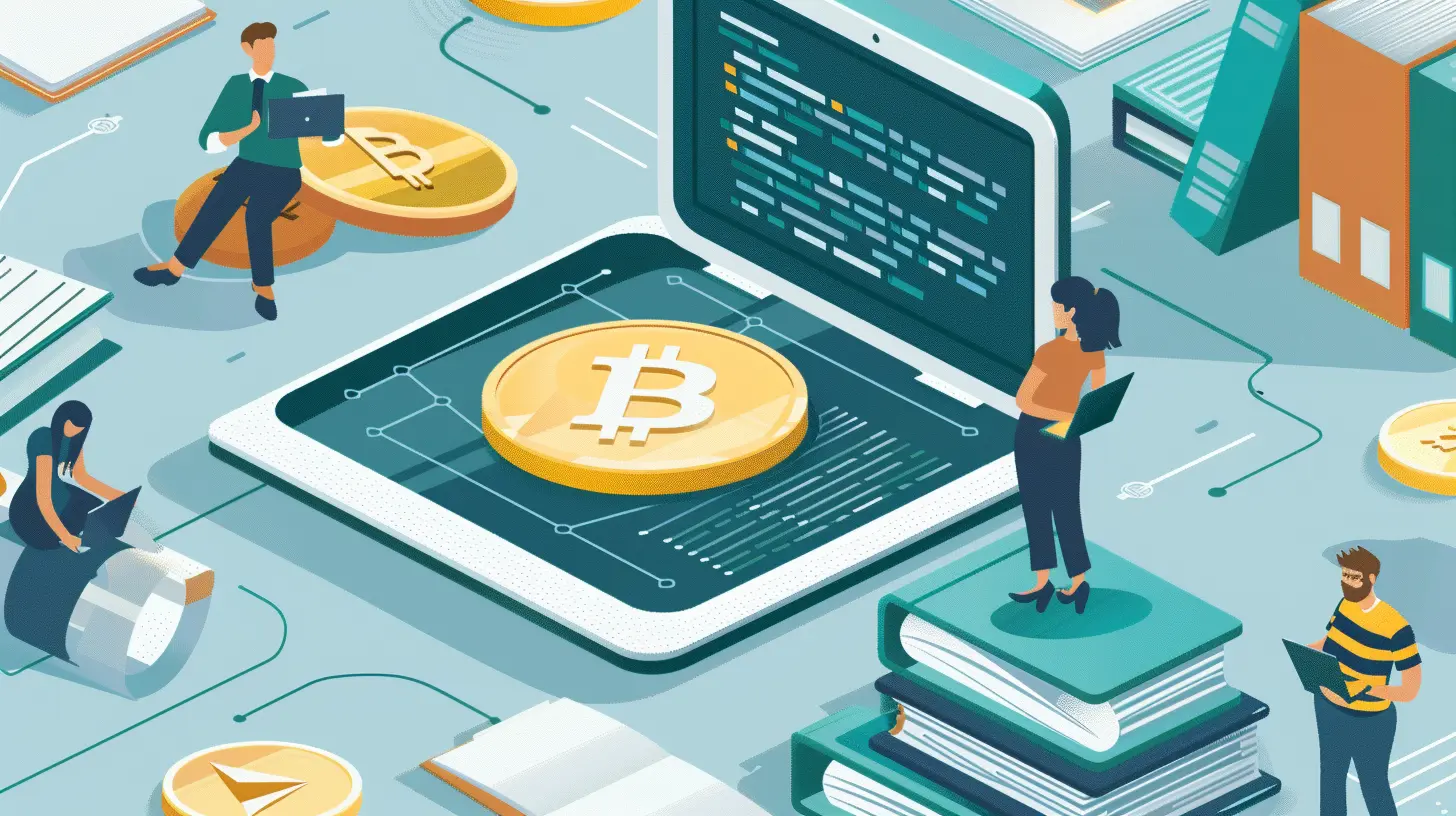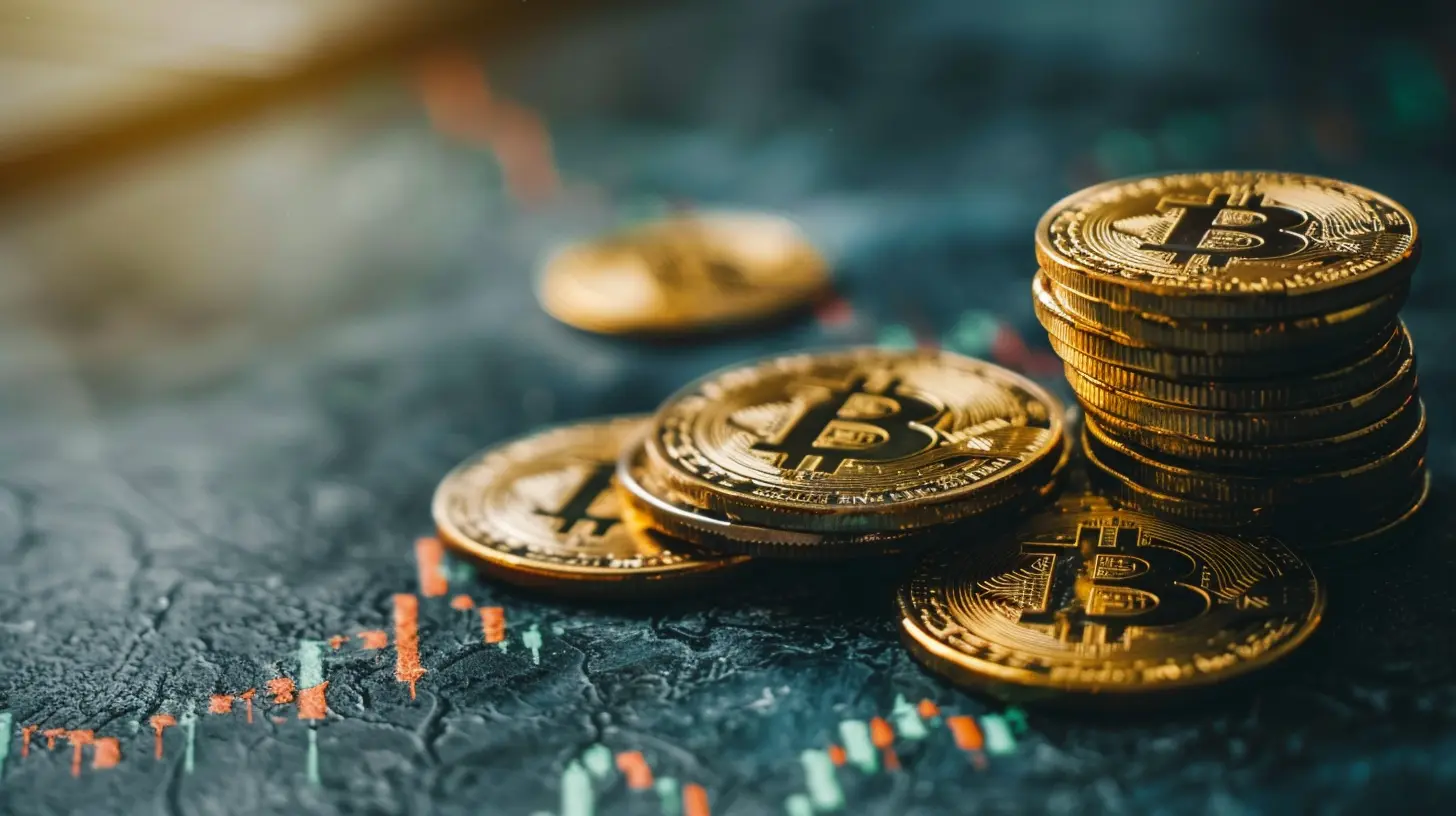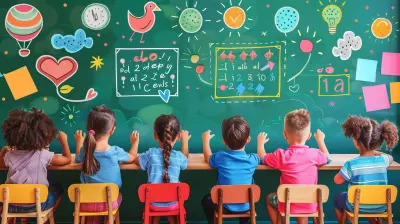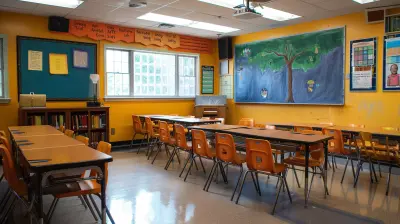Redefining Education with Blockchain Technology
26 September 2025
Imagine a world where your academic achievements are stored forever, immune to fraud, instantly verifiable, and accessible from anywhere on the planet. Sounds dreamy, right? Well, that’s precisely what blockchain technology is bringing to the classroom—and it's about time.
We live in a fast-paced digital era where innovation is not just nice to have, it’s a necessity. Our education systems, however, are still playing catch-up. Paper-based certificates, expensive middlemen, and time-consuming processes feel like relics of the past. Enter blockchain—a decentralized, secure, and transparent technology that's poised to reshape the future of education.
So, if you’ve ever questioned the reliability of traditional education systems or wondered how to make learning more secure and personalized, buckle up. We’re diving deep into how blockchain is rewriting the rules of the education game.
What Is Blockchain, Really?
Okay, before we go full throttle, let’s clear up what blockchain actually is. Think of it as a digital ledger—a record-keeping system that’s transparent, secure, and distributed across hundreds or thousands of computers. Once data is added, it can't be tampered with. Every transaction or record is verified by other computers, making it nearly impossible to cheat the system.No, it's not just for Bitcoin. Blockchain’s potential goes way beyond cryptocurrency. In fact, its ability to provide secure, permanent, and decentralized records makes it a perfect match for education.
The Problem with Traditional Education Systems
Let’s take a moment to talk about what’s broken in education (and let’s be honest, there’s a lot).- Verification Nightmares: Have you ever tried to prove your qualifications to an employer or get your transcripts from a university? It’s a slow, painful, and expensive process.
- Counterfeit Degrees: Fake diplomas are a real issue. With the right template and a printer, anyone can claim to have attended a prestigious institution.
- Lack of Lifelong Learning Recognition: Formal education is prioritized over informal learning. But what about that killer online coding course you aced? Or the leadership seminar that changed your life?
- Centralized Control: Universities, governments, and centralized platforms hold the keys to your academic records. If they mess up, you’re the one who suffers.
It’s clear—we need a smarter, faster, and more secure system. That’s where blockchain steps in.
How Blockchain Is Changing the Classroom
1. Tamper-Proof Academic Records
Blockchain can store academic qualifications permanently, with zero risk of modification. This means:- You own your credentials.
- Employers can verify qualifications instantly.
- No more lost certificates, no more fake degrees.
Imagine applying for a job with just a QR code that confirms your academic history. No back-and-forth with universities. No third-party verification fees. Just instant trust.
2. Decentralized Learning Platforms
With blockchain, education doesn’t have to be limited to traditional classrooms or even countries. Decentralized platforms powered by smart contracts (self-executing programs) can offer:- Custom learning paths based on goals and skills.
- Micro-credentials and badges for specific accomplishments.
- Peer-to-peer learning without intermediaries.
Think of it as the Airbnb of education—learning designed for the learner, by the learner.
3. Lifelong Learning Portfolios
You’re more than your GPA or diploma. Blockchain can help you build a lifelong learning portfolio that includes:- Online courses
- Workshops
- Certifications
- Soft skills
This digital resume updates in real-time and paints a fuller picture of your capabilities. It’s not just about where you went to school—it’s about what you’ve learned and how you’ve grown.
4. Global Access to Education
Ever wondered how blockchain can democratize education? Let’s say you live in a remote area with no access to urban colleges. Blockchain-powered platforms allow you to:- Access high-quality courses from global institutions.
- Earn verifiable credentials online.
- Skip the red tape involved in international education.
Now that’s what you call leveling the playing field.
Real-World Applications: Blockchain in Action
Let’s talk about how this isn’t just theory—it’s already happening.MIT’s Digital Diplomas
Massachusetts Institute of Technology (MIT) offers digital diplomas on the blockchain. Graduates can share their credentials with employers or other institutions with a simple link.Blockchain in African Universities
Countries like Kenya and Nigeria are integrating blockchain into their education systems to fight against forged certificates and streamline student admissions.Open Source Education Platforms
Platforms like ODEM and Blockcerts are revolutionizing how we issue, verify, and share educational achievements.The revolution isn’t coming—it’s here.
The Benefits Are Hard to Ignore
Let’s break it down. Why should we care about blockchain in education?✔️ Transparency
Everything is recorded openly and immutably. No shady business, no losing paper documents.✔️ Ownership
Students control their credentials. No need to rely on institutions to issue or verify them.✔️ Efficiency
Say goodbye to delays and administrative headaches. Verification is instant.✔️ Trust
With fraud-proof credentials, employers and institutions can trust what you’ve achieved.✔️ Accessibility
Education becomes borderless, affordable, and personal. That’s real equity.Challenges We Can’t Ignore
Of course, adopting blockchain in education isn’t all sunshine and rainbows. Like any tech, it comes with its set of challenges.- Technical Know-How: Many institutions lack the technical capacity to implement blockchain.
- High Initial Costs: Setting up blockchain infrastructure isn’t cheap.
- Legal & Regulatory Hurdles: Who governs educational data on the blockchain? What if the credentials are misused?
- Resistance to Change: Let’s face it—big institutions don’t love change. It takes time to shift mindsets and processes.
But here’s the thing: every revolutionary change starts with a challenge. And wouldn’t you agree that better education is worth the effort?
What the Future Could Look Like
Picture this: you wake up, log into a decentralized education platform, and take a course from a top university in Japan, earn a badge, and instantly add it to your global education passport. You apply for a job and the employer scans your QR code to verify your entire academic journey—no forms, no delays.That’s not far-fetched. That’s the power of blockchain.
We could even see students earning tokens for completing lessons, using them to unlock advanced content or even pay for future courses. Education becomes interactive, gamified, and dare I say—fun.
Final Thoughts: Embrace the Evolution
Here’s the bottom line—we’re at the edge of something big. Blockchain technology is not just a buzzword. It’s a real, game-changing tool that has the potential to redefine how we view, access, and value education.Yes, the road to blockchain-powered education may have some bumps. But the destination? Unprecedented fairness, accessibility, and trust.
So whether you're a student, a teacher, an institution, or just someone who believes in better learning for all—it’s time to pay attention. Because the future of education won’t be built with chalk and blackboards. It’ll be coded on a blockchain.
And honestly, that future? It looks pretty darn exciting.
all images in this post were generated using AI tools
Category:
Innovation In EducationAuthor:

Olivia Chapman
Discussion
rate this article
1 comments
Shannon McClintock
Imagine a classroom where your homework is secured on the blockchain, eliminating the age-old threat of 'the dog ate my homework'! With blockchain, education could become a futuristic treasure map, where learning journeys are tracked like rare Pokémon. Who's ready to catch 'em all?
October 12, 2025 at 11:47 AM

Olivia Chapman
Absolutely! Blockchain can revolutionize education by ensuring homework integrity and tracking progress like a treasure map. Let's embrace this futuristic approach!


